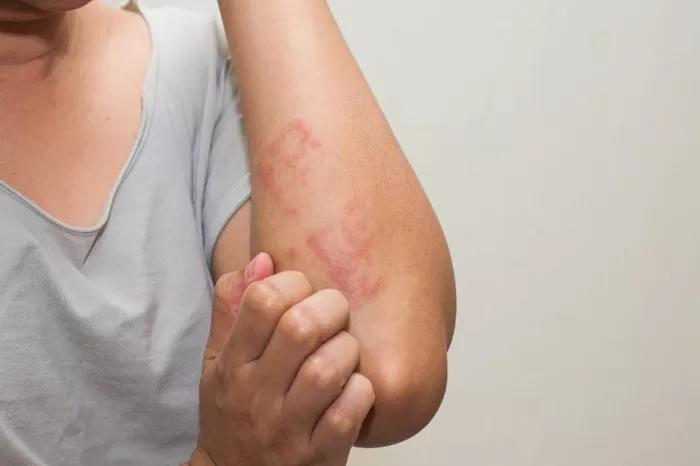Shellfish allergy is a common and potentially life-threatening condition that affects millions of individuals worldwide. While complete avoidance of shellfish is the most effective strategy for preventing allergic reactions, accidental exposure can still occur, leading to mild to severe symptoms. In this article, we will explore safe home management strategies for treating mild reactions, recognizing anaphylaxis, and preventing allergic episodes in individuals with shellfish allergy.
Basic Understanding of Shellfish Allergy
Shellfish allergy is an immune-mediated reaction to proteins found in shellfish, including crustaceans (such as shrimp, crab, and lobster) and mollusks (such as clams, mussels, and oysters). Symptoms of shellfish allergy can range from mild to severe and may include:
1. Itching or tingling in the mouth
2. Hives, rash, or eczema
3. Swelling of the lips, face, tongue, or throat
4. Nausea, vomiting, or diarrhea
5. Difficulty breathing, wheezing, or coughing
6. Dizziness or fainting
In severe cases, shellfish allergy can lead to anaphylaxis, a life-threatening allergic reaction characterized by rapid onset and multiple organ system involvement.
Safe Home Management Strategies for Mild Reactions
Antihistamines: Over-the-counter antihistamines such as diphenhydramine (Benadryl) can help alleviate mild allergic symptoms such as itching, hives, and rash. These medications work by blocking the effects of histamine, a chemical released by the immune system in response to allergen exposure.
Topical Treatments: Calamine lotion or hydrocortisone cream can provide relief from itching and irritation associated with mild allergic reactions. Applying these topical treatments directly to the affected area can soothe the skin and reduce discomfort.
Hydration: Drinking plenty of fluids, such as water or herbal tea, can help flush allergens out of the body and prevent dehydration. Staying hydrated is especially important during allergic reactions, as vomiting or diarrhea can lead to fluid loss.
Rest: Allergic reactions can be physically and emotionally exhausting. Encourage the individual to rest in a comfortable, quiet environment until symptoms subside. Avoiding strenuous activity can help prevent further stress on the body and promote recovery.
Recognizing Anaphylaxis and the Crucial Role of Epinephrine
Anaphylaxis is a severe and potentially life-threatening allergic reaction that requires immediate medical attention. Symptoms of anaphylaxis can include:
1. Difficulty breathing or wheezing
2. Swelling of the tongue or throat
3. Rapid heartbeat or weak pulse
4. Severe dizziness or fainting
5. Loss of consciousness
If you suspect that someone is experiencing anaphylaxis, it is essential to administer epinephrine (EpiPen) immediately and call for emergency medical assistance. Epinephrine is a medication that helps reverse the symptoms of anaphylaxis by constricting blood vessels, relaxing smooth muscles, and increasing heart rate.
Importance of Seeking Immediate Emergency Medical Care for Severe Reactions
Severe allergic reactions require prompt medical intervention to prevent complications and potentially life-threatening outcomes. If an individual experiences symptoms of anaphylaxis, such as difficulty breathing or swelling of the throat, do not hesitate to call emergency services and seek immediate medical attention. Delaying treatment can result in serious consequences, including respiratory failure, cardiac arrest, or death.
Prevention Strategies
Strict Avoidance: The most effective way to prevent allergic reactions to shellfish is to avoid consuming shellfish products altogether. This includes avoiding direct contact with shellfish and being vigilant about cross-contamination in food preparation areas.
Reading Labels: When grocery shopping or dining out, carefully read food labels and ask about ingredients to ensure that products do not contain shellfish or shellfish-derived ingredients. Be aware of hidden sources of shellfish, such as fish sauce, seafood flavoring, and surimi (imitation crab meat).
Medical Identification: Individuals with shellfish allergy should wear a medical identification bracelet or necklace indicating their allergy. This can alert others to their condition in the event of an emergency and help facilitate prompt treatment.
Disclaimer Emphasizing the Need for Professional Medical Guidance
It is important to note that while these home management strategies can help alleviate mild allergic symptoms, they are not a substitute for professional medical care. Individuals with shellfish allergy should work closely with their healthcare provider to develop a personalized allergy management plan, including emergency response protocols and prescription medications such as epinephrine auto-injectors.
In conclusion, shellfish allergy requires diligent management and strict adherence to avoidance measures to prevent allergic reactions. By being proactive in recognizing symptoms, administering appropriate treatment, and implementing prevention strategies, individuals with shellfish allergy can effectively manage their condition and reduce the risk of serious complications. However, it is essential to seek professional medical guidance and follow up with regular allergy assessments to ensure optimal health and safety.
[inline_related_posts title=”You Might Be Interested In” title_align=”left” style=”list” number=”6″ align=”none” ids=”6768,6765,6720″ by=”categories” orderby=”rand” order=”DESC” hide_thumb=”no” thumb_right=”no” views=”no” date=”yes” grid_columns=”2″ post_type=”” tax=””]
































